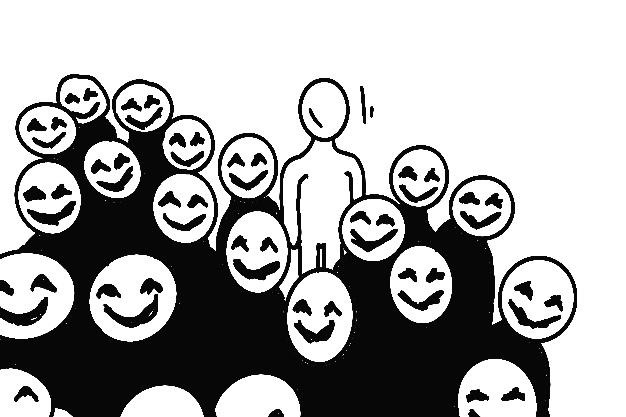The ever-evolving cycle of language
November 18, 2022
Every day, people are surrounded by others’ conversations and interactions. Just like fashion trends, words and their connotations are constantly evolving. Words are how people communicate their frustrations, thoughts and themselves. The messages words convey can be powerful, but often people forget how important it is to understand what they’re saying. Being mindful of word choice is crucial in order for people to speak freely and truthfully without offending any person or group of people. We at The Tower believe that everyone should be able to voice their opinions and beliefs freely while still being respectful to the opposition, ensuring productive and kind conversations.
The evolving connotation of words is called semantic change, and it’s described in four different ways: broadening, narrowing, amelioration and pejoration. Broadening is a word with previously one meaning gaining others to create more generality, for example, business. Oppositely, narrowing is when words lose or shift in essence, like the word “gay” being used to describe happiness in old English which isn’t very common currently. Amelioration refers to the growing positivity of a word meaning like how “nice” previously meant foolish instead of fantastic. Pejoration mirrors amelioration, describing the growing negativity of a word’s connotation–silly previously being used as just carefree and now including lower connotations of foolishness. These four terms are how linguists have decided to break down language conceptualization and categorize language shifts through different periods and generations.
Everyone has likely heard the phrase “sticks and stones can break my bones, but words can’t hurt me.” This isn’t necessarily true. Some of the most detrimental feelings people have can occur from spoken levels. Psychologically, negative words impact our confidence and anxiety levels. This was shown in a study completed by Maria Richter and collaborating scientists on stress hormones released by the brain in response to hurtful words. All of this was proven to lead to long-term anxious feelings. This response isn’t altered depending on who is saying them. Some of the most negative things people hear come from themselves, which is why being conscious of the language used internally and towards others matters; positivity can alter mindsets and realities. We at The Tower would implore our readers to think before they speak and to understand that their words do have power and could affect another person in a very profound way, negatively or positively.
How a person feels can also impact how they interact with others in general. In a neural model and study completed by David S. Chester, when somebody experiences negative emotions, negative urgency occurs, which is a failure of self-control in our prefrontal cortex leading to impulsive behaviors. The impact of hate speech is not momentary to the person experiencing it and rather plants the seed of bigger insecurity or anger issues. This can lead to negative emotions being focused on someone else. Bullying has also developed with the world and its languages. With modern technology, issues such as cyberbullying and targeting people through social media have risen. According to data from the Federal Bureau of Investigation (FBI), 15 percent of people under 18 committed hate crimes and hate speech in 2019. That same year 22 percent of 12-18 year-olds reported being victims of hateful behaviors from their peers. We at The Tower believe that everyone at South should focus on removing these issues from our school and be mindful of the psychological impacts hate speech and bullying could have on others.
Words are clearly in constant semantic evolution and it’s important to follow along and learn. We at The Tower believe everyone should respect each other and not be afraid of change, instead embracing new connotations and interpretations of words we use daily.

















































































